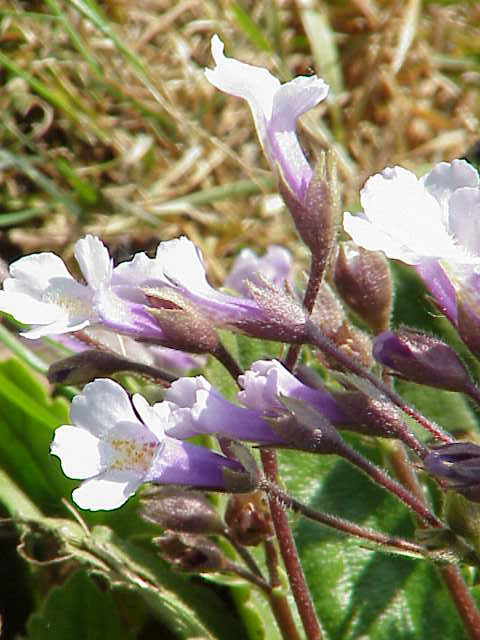|
Didymocarpus Adenocarpus
''Didymocarpus'' is a genus of flowering plants in the family Gesneriaceae and typical of the tribe Didymocarpeae. There are about 100 known species distributed in India, Nepal, Bhutan, Myanmar, southern China, Vietnam, Laos, Cambodia, Thailand, and the Malay Peninsula, with one species extending up to northern Sumatra. Some members of the genus are known for their medicinal properties, especially to cure diseases related to the kidneys. Description The members of the genus are typically small perennial, deciduous herbs with annual flowering stems. Flowering shoots are produced from the basal rootstock or condensed rhizome during the onset of rainy season which dies after producing the fruits. Leaves are opposite, decussate and mostly unequal within pairs. The inflorescence is pair-flowered cyme, typical of the Gesneriad family, with few to many flowers. The calyx is often united for more than half of its length or rarely free to the base. The corolla is tubular, ... [...More Info...] [...Related Items...] OR: [Wikipedia] [Google] [Baidu] |
Gesneriaceae
Gesneriaceae, the gesneriad family, is a family of flowering plants consisting of about 152 genera and ca. 3,540 species in the tropics and subtropics of the Old World (almost all Didymocarpoideae) and the New World (most Gesnerioideae), with a very small number extending to temperate areas. Many species have colorful and showy flowers and are cultivated as ornamental plants. Etymology The family name is based on the genus ''Gesneria'', which honours Swiss naturalist and humanist Conrad Gessner. Description Most species are herbaceous perennials or subshrubs but a few are woody shrubs or small trees. The phyllotaxy is usually opposite and decussate, but leaves have a spiral or alternate arrangement in some groups. As with other members of the Lamiales the flowers have a (usually) zygomorphic corolla whose petals are fused into a tube and there is no one character that separates a gesneriad from any other member of Lamiales. Gesneriads differ from related families of the ... [...More Info...] [...Related Items...] OR: [Wikipedia] [Google] [Baidu] |
